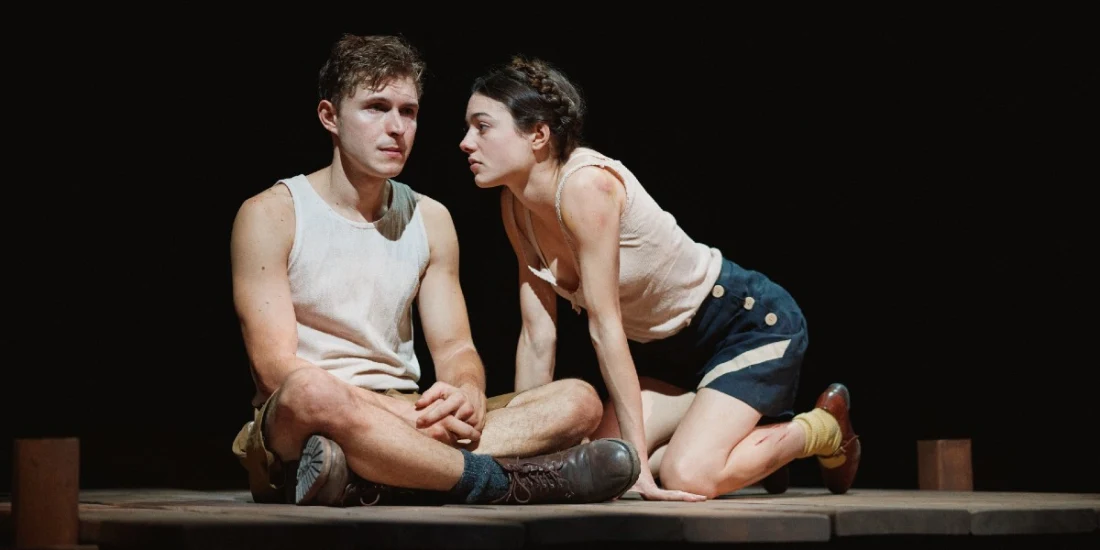'Camp Siegfried' review — a summer-camp fling with a sinister twist
I'll admit I had some preconceived skepticism walking into Second Stage Theater's production of Camp Siegfried. About a summer-camp fling between two teenagers being gradually indoctrinated into Nazism, it reminded me of This Beautiful Future, another Off-Broadway "love story" involving a young Nazi from earlier this season. That show dangerously romanticized its characters in the name of nostalgia for young love and innocence, and I feared this show would do the same.
My fears, luckily, proved unfounded. Bess Wohl's play includes romance, but sentimental and forgiving it is not. It's clear from the start that we're not supposed to root for the unnamed young lovers. Fear for them, perhaps — they are terrifyingly naive and easily seduced, and not just by each other.
It's almost too clear, in fact; the girl states her address as Hitler Street, which would be too on-the-nose if not for the fact that that street, and the title camp itself, was a real place on Long Island in the pre-World War II years. The German American Bund, a pro-Nazi group, operated Camp Siegfried and others to bring young Americans into the fold, with the end goal of them giving birth to yet another generation of Nazis.
The boy and girl's relationship in Wohl's play is thus contrived. And for a while, the plan works: Were it not for the fog of fascism choking them, their romps in the idyllic greenery (set design is by Brett J. Banakis) would almost seem sweet.
Well, mostly. The boy (Johnny Berchtold), the "runt" of his family with an inferiority complex, has a nagging habit of calling the girl "dummy." The girl (Lily McInerny), soft-spoken and fearful, gets off on calling him evil. There's a sinister streak to their relationship that we know will doom it: She's fascinated by his machismo until he uses it against her. He's fascinated by her hidden power until it threatens his own.
That power comes out in a scene, the play's strongest, where the girl is delivering a speech in German. Unsure at first, she gradually gains confidence until her final sentences are a powerful, desperate cry. But there's fear in her eyes as she seems to realize the horror of what she's saying, but it's too late to stop. She's like a swimmer caught in a rip tide, whose only options are to drown or hope to be pushed out eventually.
But that scene exposes a disconnect in Camp Siegfried. It's the only time where Nazism motivates a character's actions. the The couple each already have a viciousness (and in the boy's case, his hypercritical Nazi family) that perhaps predisposes them to Nazism, not the other way around. It's not really about how evils like Nazism subtly warp people; it's just a cautionary tale about a toxic relationship.
Wohl is trying to craft a metaphor: Falling for fascism is its own kind of toxic relationship. "Anyone can fall into anything, really. Anyone can be seduced," the girl says at the end, a rather unsubtle announcement of the play's theme. Luckily, we, the supposed intended audience of non-Nazis, are aware of this. Hopefully we remain that way. It's an evergreen and urgent message all the same.
Photo credit: Johnny Berchtold and Lily McInerny in Camp Siegfried. (Photo by Emilio Madrid)
Originally published on
